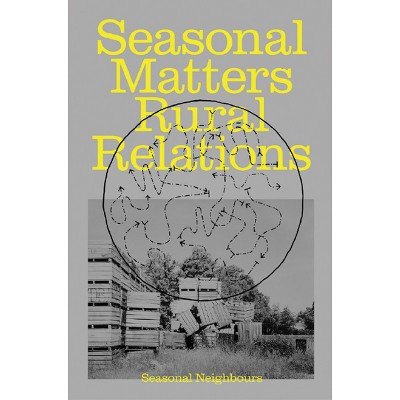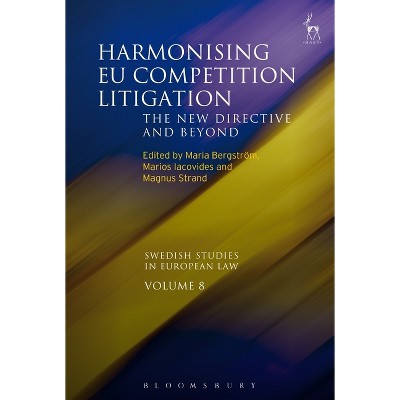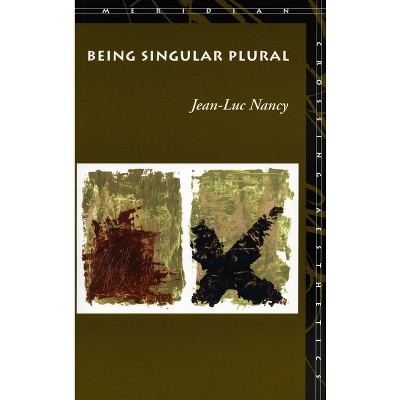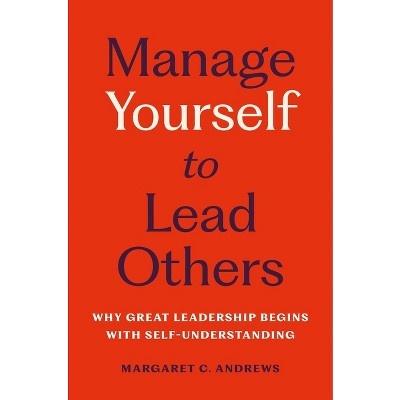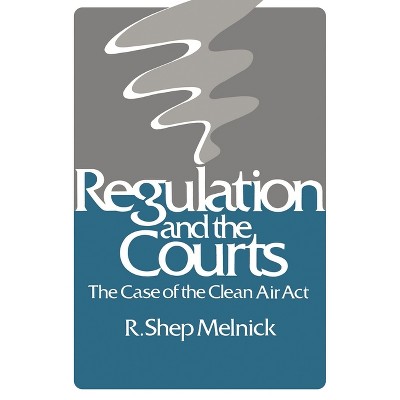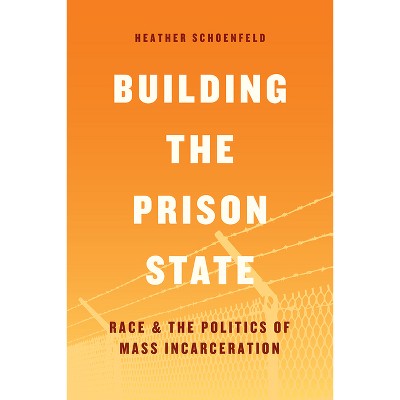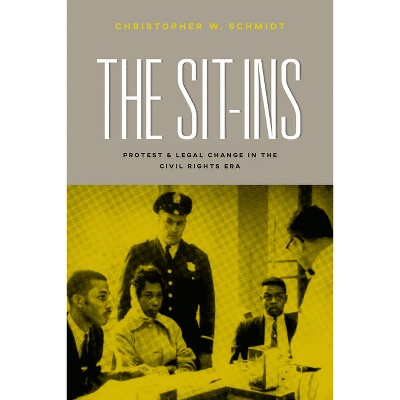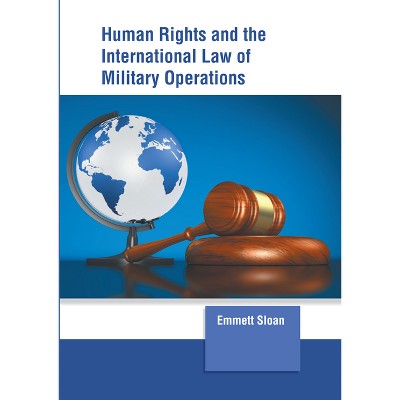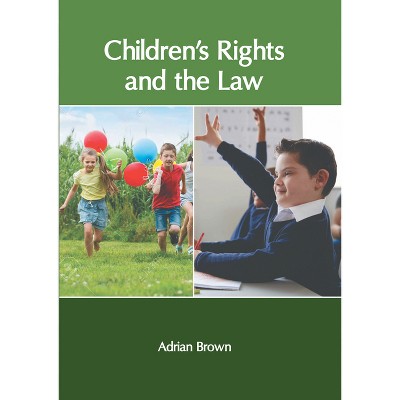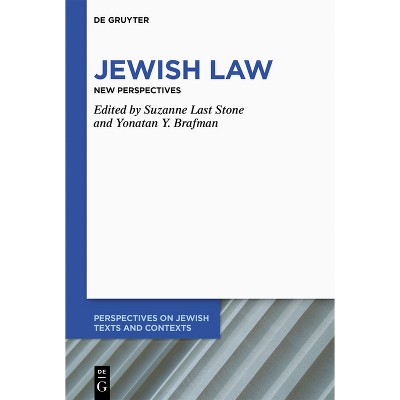Sponsored

The Crucible of Desegregation - (Chicago Law and Society) by R Shep Melnick
$105.00Save $20.00 (16% off)
In Stock
Eligible for registries and wish lists
Sponsored
About this item
Highlights
- Examines the patchwork evolution of school desegregation policy.
- Author(s): R Shep Melnick
- 336 Pages
- Political Science, Civil Rights
- Series Name: Chicago Law and Society
Description
About the Book
"In 1954, the Supreme Court delivered the landmark decision of Brown v. Board of Education--establishing the right to attend a desegregated school as a national constitutional right--, but the decision contained fundamental ambiguities. In close to three dozen decisions on school desegregation, the Supreme Court has never offered a clear definition of what desegregation means or laid out a framework for understanding or adjudicating between competing interpretations. In the Crucible of Desegregation, R. Shep Melnick examines the evolution of federal school desegregation policy from 1954 through the termination of desegregation orders in the first decades of the 21st century, combining legal analysis with a focus on institutional relations, particularly the interactions between federal judges and administrators. Melnick argues that years of ambiguous, inconsistent, and meandering Court decisions left lower court judges adrift, forced to apply contradictory Supreme Court precedents in a wide variety of highly charged political and educational contexts. As a result, desegregation policy has been a patchwork, with lower court judges playing a crucial role. They did so against the backdrop of massive resistance, and this combined with the fragmented and decentralized nature of America's political institutions and its education system. The Crucible of Desegregation reveals patterns and persistent impasses that remain relevant today. It also shows that school desegregation was a crucial driver for the expansion of the broader American civil rights state"--Book Synopsis
Examines the patchwork evolution of school desegregation policy. In 1954, the Supreme Court delivered the landmark decision of Brown v. Board of Education--establishing the right to attend a desegregated school as a national constitutional right--but the decision contained fundamental ambiguities. The Supreme Court has never offered a clear definition of what desegregation means or laid out a framework for evaluating competing interpretations. In The Crucible of Desegregation, R. Shep Melnick examines the evolution of federal school desegregation policy from 1954 through the termination of desegregation orders in the first decades of the twenty-first century, combining legal analysis with a focus on institutional relations, particularly the interactions between federal judges and administrators. Melnick argues that years of ambiguous, inconsistent, and meandering Court decisions left lower court judges adrift, forced to apply contradictory Supreme Court precedents in a wide variety of highly charged political and educational contexts. As a result, desegregation policy has been a patchwork, with lower court judges playing a crucial role and with little opportunity to analyze what worked and what didn't. The Crucible of Desegregation reveals persistent patterns and disagreements that continue to roil education policy.Review Quotes
"Through a rich analysis of the deliberative process of federal judges and their court decisions over a 70-year period, Melnick offers valuable insights into how the lack of 'all deliberate speed, ' the failure to produce a coherent definition of 'desegregation, ' and the adoption of 'colorblind' jurisprudence are all part of a broader logic to deny equality of opportunity to Black people and other people of color while maintaining a rhetorical commitment to equality."-- "Perspectives on Politics"
"This comprehensive and well-argued volume provides a legal policy perspective on the history of educational desegregation. . . . There are heroes, villains, and lessons galore to be found in this book. . . . Highly recommended."-- "Choice"
"The Crucible of Desegregation is an impressive encyclopedic account of the legal, social, and political history of school desegregation and the search for educational equality. It is refreshingly unbiased in its evaluation."-- "Political Science Quarterly"
"Bringing people with differing values, backgrounds, and desires into perfect harmony is perhaps impossible under even the best of circumstances. But as R. Shep Melnick examines, the task has been especially daunting for federal courts trying to undo centuries of forced education segregation. . . .Ultimately, Melnick's most important insight from examining 70 years of desegregation efforts is simple, but it needs constant repetition: There is no giant judicial or policy lever we can pull to create the [ideal]. Human nature is not nearly so easily overcome."-- "The Cato Institute"
"The Crucible of Desegregation offers a patchwork view of desegregation policy, revealing how administrators and judges in lower courts played a pivotal role, with remarkable achievements and setbacks alike. The book is a valuable and pragmatic resource for those interested in learning more about this history of desegregation and the court system in the US."-- "LSE Review of Books"
"Melnick provides exhaustive evidence of American desegregation policy's many shortcomings. . . Melnick is clear and convincing when showing how Southern de jure segregation was taken down only by a breathtaking rearrangement of institutional roles that disregarded the Constitution's separation of powers."-- "The Claremont Review of Books"
"Melnick's even-handed approach to the school desegregation era offers insights into what went right and what went wrong on a very important set of policies. . .readers can take important lessons about how policymakers today can forge a better future that redeems the promise of Brown."-- "Education Next"
"The Supreme Court is often praised for the clarity of its vision in Brown v. Board of Education, but its subsequent decisions are clouded with ambiguity. We still do not know whether the Constitution is color blind or conscientiously seeks to perfect the racial composition of the nation's schools. Without guidance from above, lower courts wander in a maze, and the race question, rather than resolving itself, acquires ever more political intensity. Melnick narrates this story succinctly yet with felicity, balance, and appropriate irony."--Paul Peterson Harvard Kennedy School
"This magisterial yet compelling and thoroughly readable volume by an eminent scholar unpacks the tangled, touchy saga of U.S. school 'desegregation' with all its confusion over goals and uncertainty concerning benchmarks."--Chester E. Finn Thomas B. Fordham Institute
"The Crucible of Desegregation is tour-de-force analysis of the rise and fall of desegregation and integration. This is well-trodden terrain, but if you think you know everything worth knowing about the topic, think again. This meticulously researched, elegantly written, scrupulously fair-minded account achieves the rarity feat of reshaping our understanding of one of the epochal constitutional and social issues of our time."--David Kirp University of California-Berkeley author of "Improbable Scholars"
Dimensions (Overall): 9.0 Inches (H) x 6.0 Inches (W) x .88 Inches (D)
Weight: 1.43 Pounds
Suggested Age: 22 Years and Up
Number of Pages: 336
Genre: Political Science
Sub-Genre: Civil Rights
Series Title: Chicago Law and Society
Publisher: University of Chicago Press
Format: Hardcover
Author: R Shep Melnick
Language: English
Street Date: May 10, 2023
TCIN: 1006099554
UPC: 9780226824710
Item Number (DPCI): 247-48-3562
Origin: Made in the USA or Imported
If the item details aren’t accurate or complete, we want to know about it.
Shipping details
Estimated ship dimensions: 0.88 inches length x 6 inches width x 9 inches height
Estimated ship weight: 1.43 pounds
We regret that this item cannot be shipped to PO Boxes.
This item cannot be shipped to the following locations: American Samoa (see also separate entry under AS), Guam (see also separate entry under GU), Northern Mariana Islands, Puerto Rico (see also separate entry under PR), United States Minor Outlying Islands, Virgin Islands, U.S., APO/FPO
Return details
This item can be returned to any Target store or Target.com.
This item must be returned within 90 days of the date it was purchased in store, shipped, delivered by a Shipt shopper, or made ready for pickup.
See the return policy for complete information.
Trending Non-Fiction


$18.28
was $19.58 New lower price
4.7 out of 5 stars with 17 ratings


